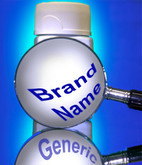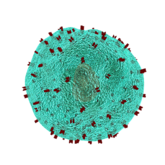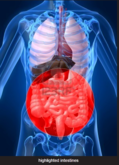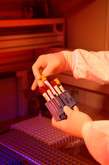Biosimilars/Research
Clinical trials begin for Bio-Thera’s golimumab copy biological
China-based Bio-Thera Solutions (Bio-Thera) have begun a phase III clinical trial for BAT2506, copy biological of the anti-inflammatory molecule Simponi (golimumab).
Bioequivalence of MYL-1402O to EU- and US-reference bevacizumab
The proposed bevacizumab biosimilar MYL-1402O demonstrated bioequivalence to European Union (EU)- and United States (US)-reference bevacizumab in a pharmacokinetic (PK) study of healthy adult male volunteers.
Biosimilars and availability of reference products
A survey was carried out by the World Health Organization (WHO) in 2019‒2020 covering most current topics pertinent to biosimilars [1].
What drives negative perceptions of biosimilars?
A study of patients taking biological drugs in New Zealand identifies a number of attributes associated with negative perceptions of biosimilars, including being female, seeking information online, and preferring innovator drugs [1].
Clinical trials begin for ustekinumab biosimilars
Biosimilars firms BioFactura and Alvotech announce the start of clinical trials for their Stelara (ustekinumab) biosimilars, named BFI-751 and AVT04, respectively.
Switching to biosimilars safe and effective in IBD patients
Multiple adalimumab biosimilars are now approved for use in inflammatory bowel disease (IBD). In fact, to date, 29 June 2021, there are 10 adalimumab biosimilars approved in Europe [1]. However, despite their approval, effectiveness and safety data in IBD remains scarce, according to authors from the UK and The Netherlands [2].
Biosimilars in Spain: balance between innovation and health public expenditure
Biosimilars have been marketed in the European Union (EU) for 13 years. Due to uncertainties about substitutability and interchangeability, their commercialization has been criticised.
Regulatory landscape for similar biotherapeutic products in Latin America
Most Latin American countries are in the process of or have already established their own regulatory guidelines for similar biotherapeutic products (SBPs), and there are regional recommendations on how to ensure the safety and efficacy of biosimilars.
Biosimilars in Japan: an overview
No regulations on interchangeability exist in Japan and switching between a reference product and biosimilar is often impractical, according to a letter recently published in The Lancet Oncology [1].
Biosimilar epoetin in the US – barriers and recommendations
A review of biosimilar epoetin, which is used to treat cancer and chemotherapy-induced anaemia, shows variable uptake in the US. The authors conclude that safety and pricing considerations are the primary determinants of uptake and make recommendations to increase usage [1].













